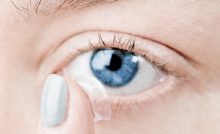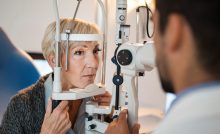Video: Everything About Diabetic Retinopathy
Diabetes is caused by your body being unresponsive to insulin or failing to produce this hormone at healthy levels. Over time, diabetes can cause organ complications, including a condition known as diabetic retinopathy. As we observe Diabetic Eye Disease Awareness Month this November, your eye doctor sheds light on this condition.
What Causes It
Having a high sugar content in your blood can make it abnormally thick, causing it to flow slowly. This can lead to poor blood circulation, reducing oxygen and nutrient delivery to different parts of your body, including your eyes. Eventually, it can lead to visual changes and even blindness.
Stages and Symptoms
Diabetic eye disease is asymptomatic in the early stages, which is why your trusted optometrist emphasizes the need for regular eye exams. As the disease progresses, the blood vessels in the retina gradually become frail and prone to breaking. This results in blood and fluid leaks into your macula, which cause it to swell. You may experience problems seeing things directly in front of you during this stage of the disease.
Over time, your eyes may start to grow new blood vessels to compensate for the reduced blood supply. These new vessels are inherently frail, causing them to rupture easily. Blood clots may deposit in your eyes, which you will see as tiny spots within your visual field. You may also develop poor night vision and blurry eyesight.
Our Suggested Treatment
Diabetic eye disease may lead to irreversible vision loss without proper eye care management. Controlling your blood sugar levels is one of the most effective ways to prevent the condition from progressing. This is why taking your medications on time is important. You should also follow the diet and lifestyle modifications recommended by your doctor.
If you are experiencing visual changes, we can prescribe corrective to help. For advanced stages, we may suggest surgery to remove blood clots in your eyes. We may also administer certain medications to suppress the growth of abnormal blood vessels.
If you have any further questions about diabetic eye disease, call us at (703) 938-7633. You may also complete our form to schedule an appointment. We serve Fairfax, VA, and nearby areas.
Recent Posts
What Is the Optometrist’s Role in Glaucoma Co-Management?
Glaucoma is a leading cause of irreversible vision loss worldwide, known insidiously as the "silent…
Who Is the Ideal Candidate for Ortho-K?
For many individuals grappling with the inconvenience of glasses or the discomfort of contact lenses,…
Love Your New Glasses? Here’s How to Make Them Last Longer
Opting for a new pair of glasses not only marks an investment in your vision…
The Link Between Neck Pain and Your Vision
Neck pain is a common ailment that affects many individuals, causing discomfort and restricting daily…
Preparing for Your Eye Exam: Tips for Accurate Results
An eye exam is an essential aspect of maintaining optimal eyesight and overall eye health.…
How Stress and Your Mental Well-Being Can Impact Vision
In the bustling and picturesque city of Vienna, VA, Vienna Eyecare Center stands as a…









